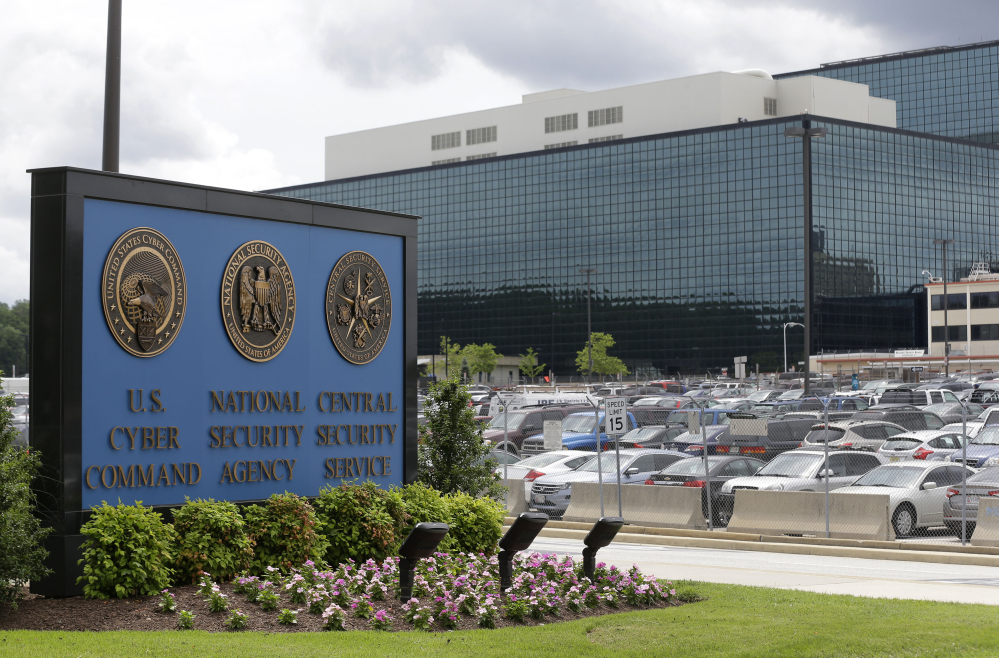NEW YORK – A federal judge in New York ruled Friday that the massive collection of domestic telephone data brought to light by former National Security Agency contractor Edward Snowden is lawful, rejecting a challenge to the program by the American Civil Liberties Union.
The decision marked a victory for the government less than two weeks after a District of Columbia federal judge ruled against it, finding that the NSA’s program was almost certainly unconstitutional. If the split in rulings continues through the appeals process, it is likely the Supreme Court will have to decide the issue.
In a 53-page opinion, U.S. District Judge William Pauley III said Friday that the program, which collects virtually all Americans’ phone records, represents the U.S. government’s “counter-punch” to eliminate the al-Qaida terrorist network and does not violate the Fourth Amendment, which prohibits unreasonable search and seizure.
Pauley endorsed the assertion made by government officials that if the United States had the phone data collection program before 2001, they might have had a better chance at preventing the Sept. 11 attacks.
“The government learned from its mistake and adapted to confront a new enemy: a terror network capable of orchestrating attacks across the world,” Pauley wrote. “It launched a number of counter-measures, including a bulk telephony metadata collection program — a wide net that could find and isolate gossamer contacts among suspected terrorists in an ocean of seemingly disconnected data.”
He added: “This blunt tool only works because it collects everything.”
Justice Department spokesman Peter Carr said the government is “pleased the court found the NSA’s bulk telephony metadata collection program to be lawful.”
In a statement, the ACLU said it intended to appeal the case to the U.S. Court of Appeals for the 2nd Circuit.
“We are extremely disappointed with this decision, which misinterprets the relevant statutes, understates the privacy implications of the government’s surveillance and misapplies a narrow and outdated precedent to read away core constitutional protections,” said Jameel Jaffer, an ACLU deputy legal director.
The ACLU filed its lawsuit on June 11, just days after the telephone data collection program was revealed by Britain’s Guardian newspaper, based on documents obtained from Snowden.
In granting the government’s motion to dismiss the case, ACLU v. Clapper, Pauley said that the sweeping collection of phone records is lawful under Section 215 of the Patriot Act and under the Fourth Amendment. But he added that the issue of whether the program should be conducted is “for the other two coordinate branches of Government to decide.” The ACLU brought the suit against James Clapper, the director of national intelligence.
The NSA program collects records of the numbers that Americans call and the duration of those calls, but not content. Civil liberties advocates have argued that the collection and storage of that data represent a violation of Americans’ right to privacy.
The government has based its legal justification for the program on a 1979 case, Smith v. Maryland, in which the Supreme Court found Americans have no expectation of privacy in the telephone metadata that companies hold as business records and ruled that a warrant is not required to obtain such information.
In a series of decisions made in secret since 2006, judges on the Foreign Intelligence Surveillance Court, which hears only the government’s side of cases, also held that the program is lawful.
In a Dec. 16 ruling, however, a District of Columbia federal judge rejected the government’s arguments in a strongly worded ruling that said the program “infringes on ‘that degree of privacy’ that the founders enshrined in the Fourth Amendment.”
In that opinion in the case Klayman v. Obama, U.S. District Judge Richard Leon granted a request for an injunction that blocked the collection of the phone data of conservative legal activist Larry Klayman. Klayman brought his lawsuit against the president with a co-plaintiff, Charles Strange, the father of Michael Strange, a slain Navy cryptologic technician who was killed with a SEAL team in a helicopter crash in Afghanistan.
Leon stayed his ruling to give the government time to appeal. Leon was nominated to the U.S. District Court in Washington in 2002 by President George W. Bush, while Pauley, who upheld the NSA program, was nominated to the U.S. District Court for the Southern District of New York in 1998 by President Bill Clinton.
“Judge Leon’s ruling is a dream ruling for the ACLU. And Judge Pauley’s opinion is the dream ruling for the NSA,” said Orin Kerr, a law professor at George Washington University. “Substantively and rhetorically, they are really different. Point and counterpoint.”
Kerr also said that the appellate precedents are different in Washington and in New York, so that both courts could be correct on their interpretation of Fourth Amendment issues for their jurisdictions.
“Both of the opinions are just grist for the mill for the appeals courts,” Kerr said.
As the issue plays out in the courts, Congress is debating whether the NSA’s powers should be curtailed. A panel appointed by President Barack Obama recommended that the NSA should no longer store the data. Obama said that in January he will make a statement on what NSA reforms he supports.
Send questions/comments to the editors.



Success. Please wait for the page to reload. If the page does not reload within 5 seconds, please refresh the page.
Enter your email and password to access comments.
Hi, to comment on stories you must . This profile is in addition to your subscription and website login.
Already have a commenting profile? .
Invalid username/password.
Please check your email to confirm and complete your registration.
Only subscribers are eligible to post comments. Please subscribe or login first for digital access. Here’s why.
Use the form below to reset your password. When you've submitted your account email, we will send an email with a reset code.